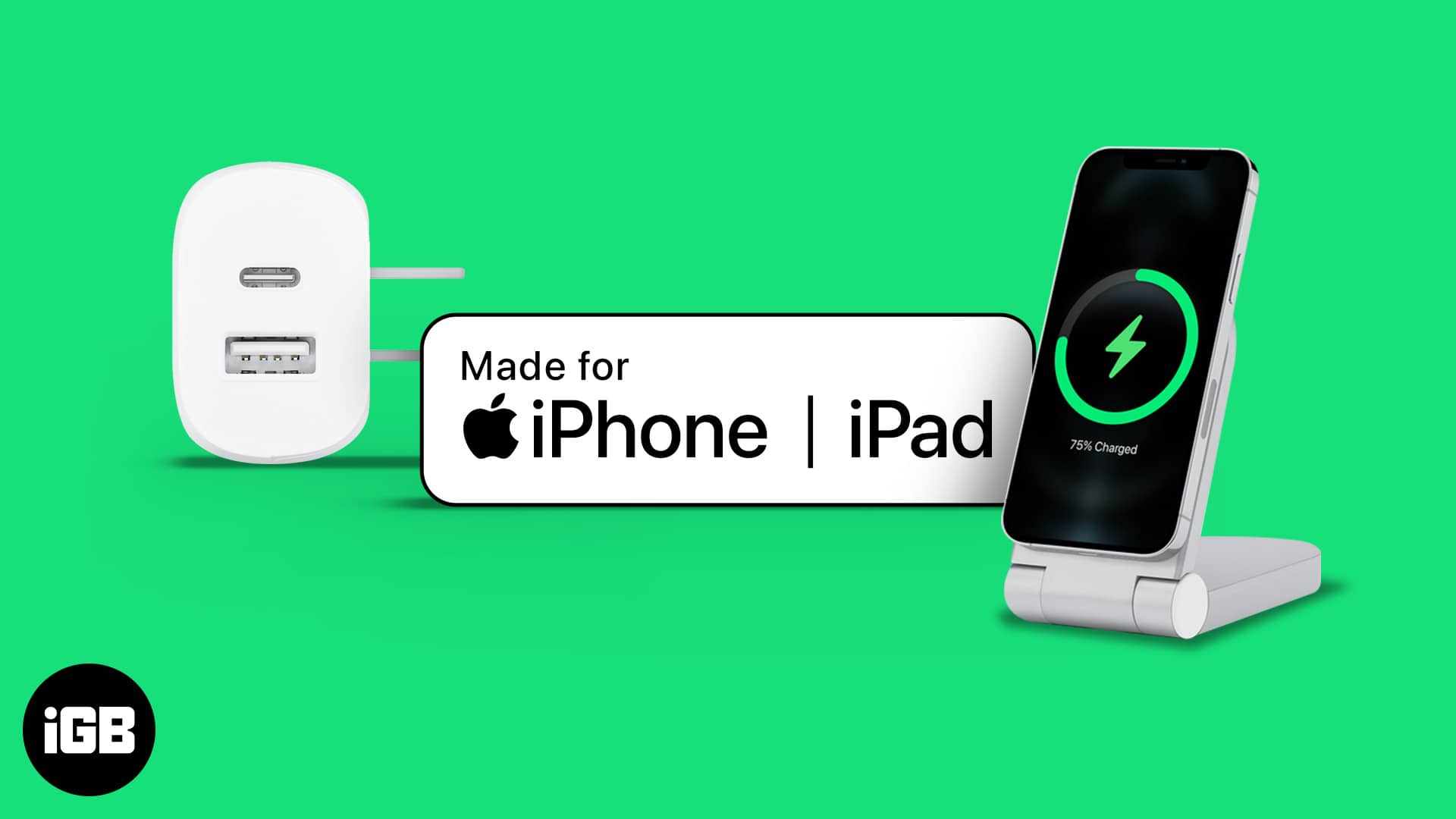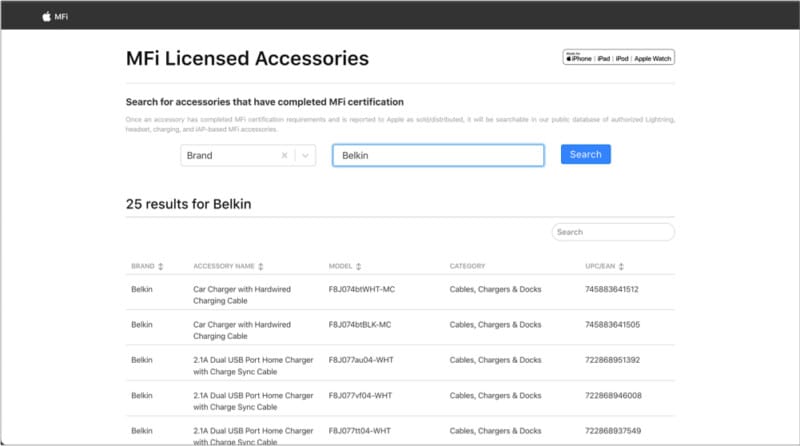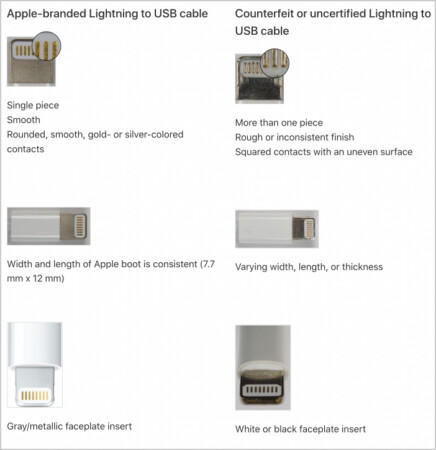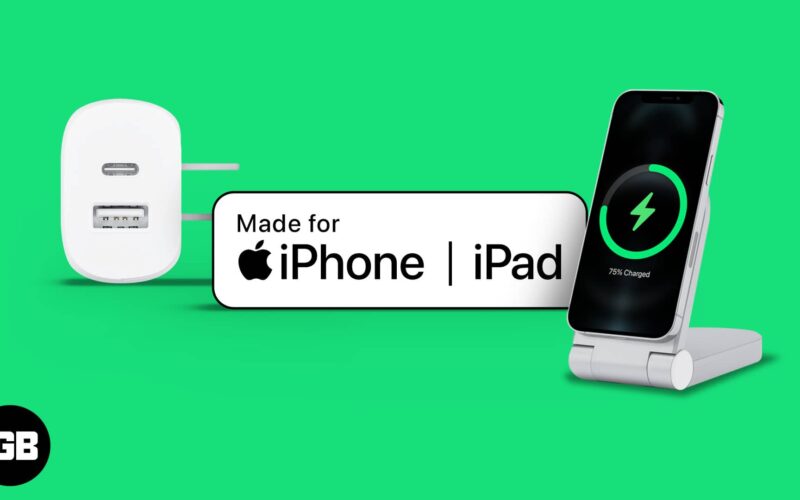There’s no denying that Apple accessories are more expensive than third-party accessories, which serve the same purpose at a fraction of its price. However, are these “third-party accessories” safe? Should you risk your data or, in extreme cases, your life to save a few bucks? I don’t think so.

And that’s exactly how Apple thinks too! To prevent these issues, Apple has an MFi program in place that assures accessories are certified by Apple, denoting that they’re safe to use. Let’s know more about what MFi is and how it works.
What is MFi?

MFi stands for Made For iPhone/iPad/iPod and was first introduced in 2005 as Made For iPod, which certified accessories for its 30-pin dock connector. With time, this program now applies to the Lightning cable and other accessories sold by Apple. It ensures that third-party accessories are safe to use.
If you see a “This accessory may not be supported” pop up every time you connect your device to an accessory, it might be due to several reasons, but the most prominent is the product not being MFi certified.
But how do brands get their accessories MFi-certified?
To get accessories MFi certified, brands need to provide Apple with an overview of their product from conception to production. The product should integrate MFi-licensed technology. Once developed, it goes to Apple, which then runs tests and reviews the product. Once certified, the product is mass-produced, distributed, and sold.
The royalty associated with MFi certification is not public information. However, an article dating back to 2014 states that Apple charges a flat $4 rate per connector.
Why does MFi-certification matter?
Using accessories that are not MFi certified might cause issues beginning with the cables and connectors’ quality, performance, and safety. Let’s talk about each of these in detail.
1. Quality of products
While Apple accessories are expensive, Apple delivers on the quality front of their products. And the same can be said for products that have the MFi certification. Several MFi-certified Lightning cables provide better quality than their counterparts.
However, non-MFi-certified products cannot be held in the same high regard as they not only have a poor built quality which leads to easy wear and tear but also are potential health hazards.
2. Safety and risks involved (Hackers)
Yes, non-MFi-certified cables can damage your Apple products and be infested with malware that tracks your activity. Don’t trust me? Have a look at this Lightning cable that tracks everything you type.
Non-MFi-certified accessories can also be a health hazard as these easily wear out. Especially cables and connectors, which we interact with bare hands daily, are risky objects when the inner wire is exposed.
3. Performance
Non-MFi cables also hinder performance in terms of charging speeds. Some cables might not even charge your device at all. Moreover, you might experience sluggish data transfer speeds or no support for data transfer at all. So, the money you initially invested is now rendered useless.
How to find a list of Apple MFi-certified accessories

Firstly, to check if an accessory is MFi-certified, look for these badges on the device’s box or the product page on its brand’s website. Head to Apple’s MFi-licensed accessories website to confirm these claims further, which has a list of all the licensed accessories.
Open the website and select Brand in the first drop box, and in the next text box, type the brand and product’s name. If the product is MFi-certified, it will appear in the results and confirm that it is MFi-certified. If the product does not appear on the list, it does not have the certification.
How to identify fake chargers

What if you buy a charger with MFi certification on the box, but it seems too good to be true for the price, and even the product’s quality is not up to the mark? Well, if you can follow the steps mentioned above and are still unsatisfied, here’s what you can do.
Head over to Apple’s website that identifies counterfeit accessories. It has many details in the form of text and images that help identify the differences between the original and counterfeit products.
I hope this article encourages you to stick to MFi-certified accessories, if not first-party Apple accessories. Let me know if you have any other doubts about MFi certification in the comments below.
FAQs
Slow charging speeds, slow data transfer speeds, damaged cables, which might lead to a potential risk to one’s life, and damage to your device are some of the risks involved with using a non-MFi certified cable.
Apple charges a flat $4 rate per connector, according to a report in 2014.
The box will have the MFi badge if your lighting cable is MFi-certified. You can also head to the MFi Licensed Accessories page to check if the product is MFi-certified.
To know more about Apple’s service, read:



Great information! I had no idea how important MFi certification was for ensuring compatibility with Apple devices. Thanks for sharing tips on how to find certified accessories—definitely will be more mindful when shopping!